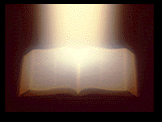Jefferson advocated 'gate' between church and state
Pastor's research says 'deist' described himself as Christian
--------------------------------------------------------------------------------
Posted: February 21, 2007
1:00 a.m. Eastern
By Bob Unruh
© 2007 WorldNetDaily.com
Thomas Jefferson, credited with penning the famous "wall of separation between Church and State" on which many secular organization have rested their hopes of eliminating Christianity from the public square, actually believed in a "gate" allowing free passage between the two, according to a researcher who's reviewed Library of Congress documents.
How else, asked Todd DuBord, senior pastor at Lake Almanor Community Church, could Jefferson as president in 1803 recommended a treaty with the Kaskaskia Indians in which U.S. taxpayers promised to pay $100 a year for seven years "for the support of a [Catholic] priest …" and made a commitment that "the United States will further give the sum of three hundred dollars to assist the said tribe in the erection of a church…"
And how else could Jefferson, as president, have held Christian church services in the executive branch buildings, the U.S. House of Representatives, and even the U.S. Supreme Court chambers? he asked.
"I used to believe in 'a wall of separation between Church and State,'" DuBord wrote in a compilation of his research prepared for his church website. "After researching the religion and politics of Thomas Jefferson in the Library of Congress, I now understand that barrier was a gate Jefferson would often pass through."
DuBord, who was exposed to the conflict between the actual Christian heritage of the United States and what is being portrayed as the nation's secular heritage while on a tour of the Washington, D.C., and nearby areas, has researched the nation's Christian heritage through materials from the Library of Congress, and has been submitting requests that agencies responsible for that information be more accurate.
For example, WND has reported that he's been campaigning with the U.S. Supreme Court to provide information that the stone tablet in the East Wall Frieze actually represents the Ten Commandments, not the ten amendments as current public information states. His documentation on the church's website shows historical documents overwhelmingly support the Ten Commandments description.
WND earlier reported on his documentation of the other representations of the Ten Commandments in the Supreme Court Building.
His newest research includes pages of documentation of Jefferson's active support for the teachings of Jesus, even to the point of federal subsidies for the support of missionaries, the construction of churches, the publication of the Bible and other key outreaches.
Click here for the full story! (may need to disable pop-up blocker)
Thursday, February 22, 2007
Subscribe to:
Post Comments (Atom)
Search the Bible
| You scored as Reformed Evangelical. You are a Reformed Evangelical. You take the Bible very seriously because it is God's Word. You most likely hold to TULIP and are sceptical about the possibilities of universal atonement or resistible grace. The most important thing the Church can do is make sure people hear how they can go to heaven when they die. |
What's your theological worldview?
created with QuizFarm.com





No comments:
Post a Comment